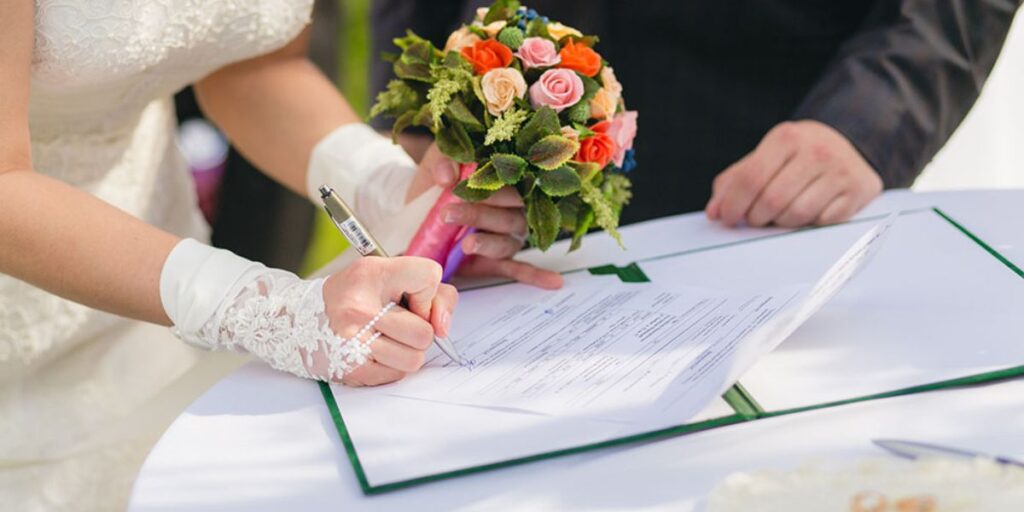With more couples choosing to live together without formally tying the knot, many wonder whether long-term cohabitation equals a legal marriage.
If you’re living with a partner in the Bay State, you may be asking: Does Massachusetts recognize common law marriage?
The short answer is no—but there are exceptions that may apply.
This guide explains the status of common law marriage in Massachusetts, how other states come into play, and what legal alternatives exist to protect your relationship.
Is Common Law Marriage Legal in Massachusetts?
No, Massachusetts does not allow or recognize the creation of common law marriages within the state. Simply living together for a long time, sharing finances, or referring to each other as “husband” and “wife” does not create a legally binding marriage under Massachusetts law.
To be legally married in Massachusetts, couples must:
- Obtain a marriage license
- Participate in an official marriage ceremony conducted by a legally authorized officiant
Does Massachusetts Recognize Out-of-State Common Law Marriages?
Yes, Massachusetts will recognize a common law marriage that was legally established in another state that allows it.
For instance, if you and your partner:
- Lived in a state like Texas, Colorado, or Iowa, where common law marriage is legal
- Met all the legal criteria of that state for common law marriage
- Then moved to Massachusetts
Your marriage will be considered valid in Massachusetts. This includes rights related to divorce, property division, inheritance, and more.
Why This Distinction Matters
If your relationship qualifies as a legal marriage in another state and is recognized in Massachusetts, you may be entitled to:
- Alimony or spousal support
- Division of marital property
- Health insurance benefits
- Inheritance rights
- Legal recognition in court proceedings
However, if your relationship was never formalized by marriage or common law in a qualifying state, Massachusetts law treats you as unmarried, regardless of how long you’ve lived together.
Legal Alternatives to Common Law Marriage in Massachusetts
If you’re in a long-term relationship and don’t wish to marry formally, you can still take steps to protect your rights and responsibilities:
1. Cohabitation Agreements
A legally binding contract that defines how property, finances, and responsibilities are handled during the relationship and if it ends.
2. Health Care Proxy or Power of Attorney
These allow partners to make medical or financial decisions for one another in the event of incapacity.
3. Wills and Estate Plans
Without legal marriage, your partner will not automatically inherit your assets unless you have an updated will or trust in place.
4. Joint Ownership
Consider how you title shared property—such as homes, vehicles, or bank accounts—to ensure your partner has access or ownership rights.
Final Thoughts
While Massachusetts does not allow common law marriage, it does recognize valid common law marriages from other states.
If you live with a partner and want to ensure you’re legally protected, it’s important to understand your status and take proactive steps—like creating legal agreements and planning your estate.




More Stories
Common Law Marriage Massachusetts: Legal Requirements and Exceptions
Common Law Marriage Massachusetts: Legal Requirements and Exceptions
Common Law Marriage Massachusetts: Legal Requirements and Exceptions